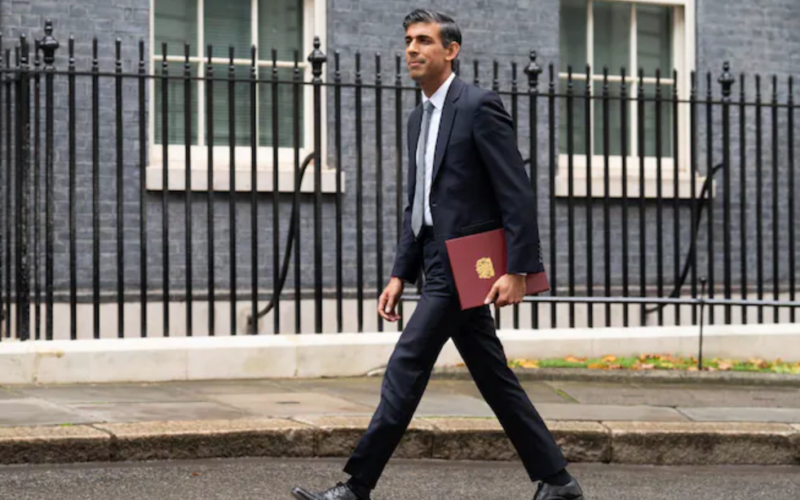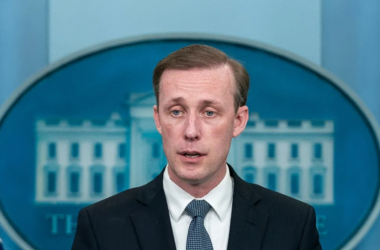The United Kingdom’s economy has plunged into a recession in the latter half of 2023, presenting a formidable challenge for Prime Minister Rishi Sunak as he navigates the country’s economic woes ahead of an anticipated election later this year. Official data revealed a contraction in Gross Domestic Product (GDP), further exacerbated by a disappointing performance in the final quarter of the year, underscoring the urgency for decisive action to stimulate growth and address mounting concerns.
The latest figures indicated a worse-than-expected GDP contraction of 0.3% in the three months to December, following a 0.1% decline between July and September. Market analysts had anticipated a milder 0.1% fall in the October-to-December period, amplifying the shock of the economic downturn. The news prompted a depreciation of the sterling against major currencies and heightened speculation about potential interest rate cuts by the Bank of England (BoE) amid calls from businesses for increased government support.
Alex Veitch, Director of Policy and Insight at the British Chambers of Commerce, emphasized the gravity of the situation, noting that businesses were already grappling with significant challenges even before the recessionary announcement. Veitch stressed the imperative for Chancellor Rishi Sunak to outline a clear strategy for fostering economic growth in the upcoming budget presentation scheduled for March 6.
Finance Minister Jeremy Hunt sought to strike a note of optimism, acknowledging signs of a potential turnaround in the British economy while emphasizing the importance of adhering to the government’s fiscal plan aimed at bolstering economic resilience. However, media reports suggested that budgetary constraints might necessitate cuts to public spending to finance pre-election tax reductions, highlighting the delicate balancing act facing policymakers amidst economic uncertainty.
The Office for National Statistics (ONS) reported a modest 0.1% expansion in the economy for the entirety of 2023 compared to the previous year. Nevertheless, the BoE’s subdued growth forecast of 0.25% for 2024 underscores lingering challenges on the path to recovery. The protracted economic stagnation, exacerbated by the COVID-19 pandemic, has cast a shadow over the nation’s economic prospects, with recessions becoming increasingly infrequent as the economy matures.
Concerns about inflation persist, with January figures indicating a lower-than-expected rate of 4.0%, reigniting discussions among investors regarding potential BoE rate adjustments. However, robust wage growth reported earlier underscored the central bank’s cautious approach towards monetary policy interventions.
The decline in GDP during the final quarter of 2023 was the most significant since early 2021 when the country grappled with the imposition of new COVID-19 restrictions. The manufacturing, construction, and wholesale sectors emerged as the primary contributors to the economic downturn, reflecting the broad-based nature of the challenges facing the economy.
GDP per capita witnessed a sustained decline throughout 2023, marking the longest streak of contraction since records began in 1955. As the government grapples with the economic fallout of the recession, stakeholders across sectors are looking towards policymakers for effective measures to revive growth and steer the economy towards a path of sustainable recovery.








